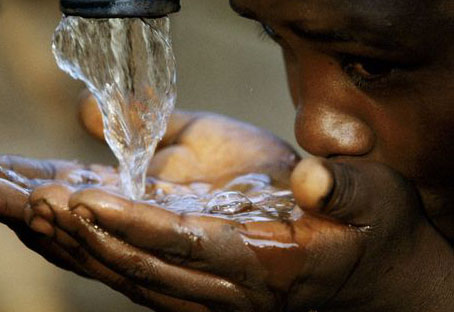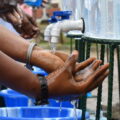Nigeria is so rich in water resources that many of its 36 states are named after rivers. In fact, only 19% of Nigeria’s population has access to safe drinking water. Although 67% of people have basic water supply, access is uneven.
According to UNICEF, poor access to improved water and sanitation in Nigeria remains a major contributing factor to high morbidity and mortality rates among children under five. The use of contaminated drinking water and poor sanitary conditions result in increased vulnerability to water-borne diseases, including diarrhoea which leads to deaths of more than 70,000 children under five annually.
Why is Water Important in Nigeria?
Water is essential for life. From the time that primeval species ventured from the oceans to live on land, a major key to survival has been prevention of dehydration. The critical adaptations cross an array of species, including man. Without water, humans can survive only for days. Water comprises from 75% body weight in infants to 55% in elderly and is essential for cellular homeostasis and life. Other importance of water includes;
- Water boosts energy. Water delivers important nutrients to all of our cells, especially muscle cells, postponing muscle fatigue.
- Water helps weight loss. Water helps you feel full longer, without adding any additional calories. Drinking water or eating foods with a high water content can be a big help in managing your weight.
- Water aids in digestion. Water aids in constipation and other abdominal issues, especially those suffering from IBS. Water helps to move the digestive process along and through the system.
- Water detoxifies. Moves toxins through your system faster, and optimizes kidney function. Inadequate hydration means inadequate kidney function.
- Water hydrates skin. Forget expensive creams and cure-alls, water is the best defense against aging and wrinkles in the skin.
- Hygiene. Without water proper hygiene is impossible. In some parts of the world there is little or no awareness of good hygiene practices and their role in reducing the spread of disease.
- Sanitation. Water is critical to the improvement of sanitation There is the potential to save the lives of the 829,000 people who currently die every year from diseases directly caused by unsafe water, inadequate sanitation and poor hygiene practices.
- Food. Agricultural water is water that is used to grow fresh produce . The use of agricultural water makes it possible to grow fruits and vegetables, which is a main part of our diet.
- Medical Water. Water plays an important role in the health care field. From washing surgical tools and equipment to creating a soothing environment for patients to have hydrotherapy, water is essential to the effectiveness of the health industry.
- Animals. A large percentage of Nigerians get the bulk of their protein intake from farm animals and fish. Water is very important in animal production and is the most important factor affecting fish health and performance in aquaculture production systems.
How much water should you drink a day?
The daily four-to-six cup rule is for generally healthy people. It’s possible to take in too much water if you have certain health conditions, such as thyroid disease or kidney, liver, or heart problems; or if you’re taking medications that make you retain water, such as non-steroidal anti-inflammatory drugs (NSAIDs), opiate pain medications, and some antidepressants.
How much water a day should you drink if you fit into that category? There’s no one-size-fits-all answer. Water intake must be individualized, and you should check with your doctor if you are not sure about the right amount for you. But even a healthy person’s water needs will vary, especially if you’re losing water through sweat because you’re exercising, or because you’re outside on a hot day. If you’re wondering how much water you should drink on those occasions, speak with your doctor, but a general rule of thumb for healthy people is to drink two to three cups of water per hour, or more if you’re sweating heavily.
Tips for avoiding dehydration
It’s not just water that keeps you hydrated. All beverages containing water contribute toward your daily needs. And it’s a myth that caffeinated beverages or those containing alcohol are dehydrating because they make you urinate. They do, but over the course of the day, the water from these beverages still leads to a net positive contribution to total fluid consumption.
Of course, there are many reasons why water is still the better choice. Remember, sugary drinks can lead to weight gain and inflammation, which can increase your risk for developing diseases such as diabetes. Too much caffeine can give you the jitters or keep you from sleeping. And, alcohol intake should be limited to one drink per day for women, and 1-2 drinks per day for men.
To ward off dehydration, drink fluids gradually, throughout the day. An easy way to do this is to have a drink at each meal, as well as socially, or with medicine. And know that you also get fluids from water-rich foods, such as salads, and fruits.
The guideline recommended amount is six to eight glasses per day, though this varies from person to person. Those who exercise regularly, work outside, or have chronic medical conditions should consume more water to compensate for more water loss. READ: Five Qualities Of A Good Water






